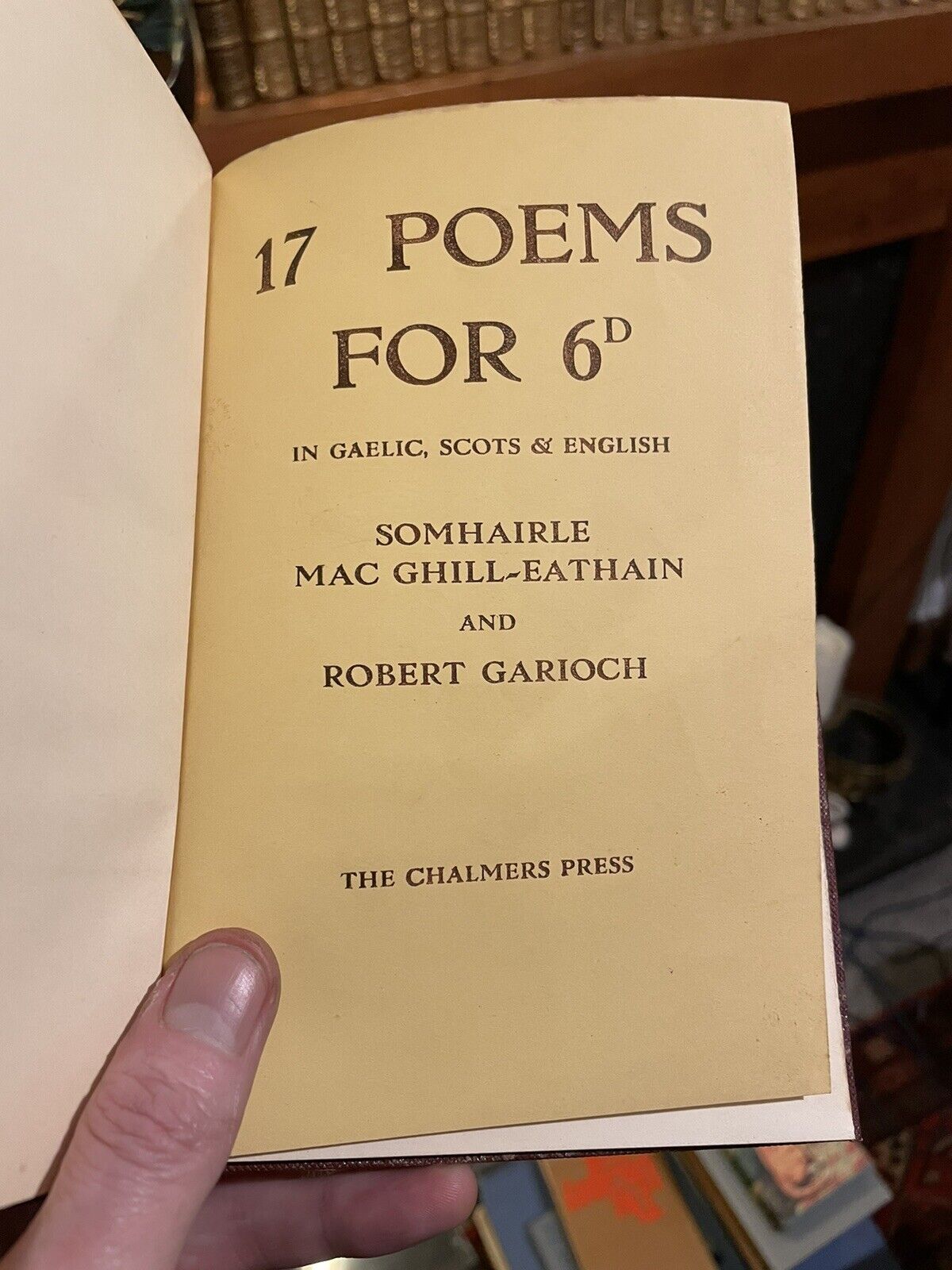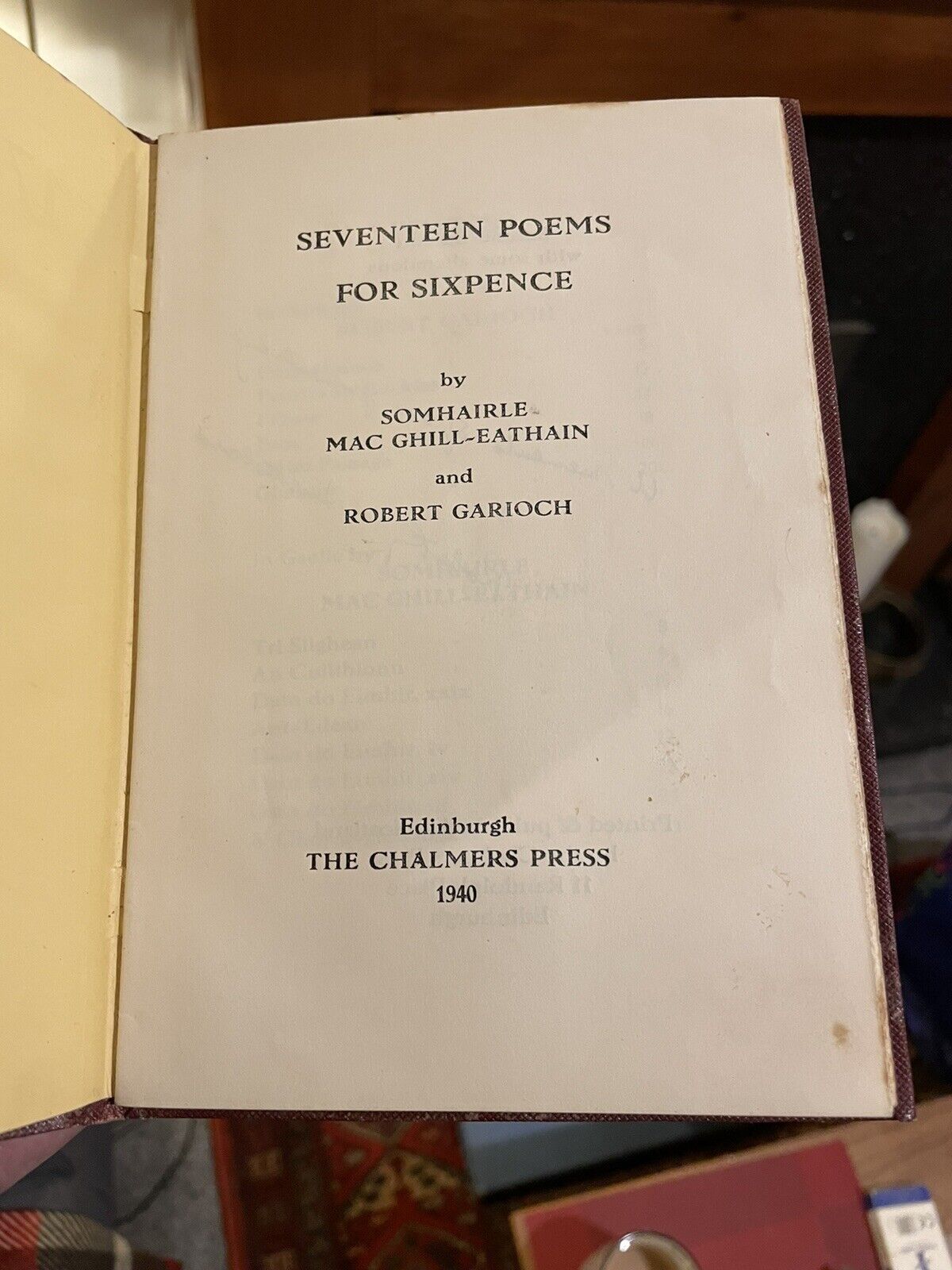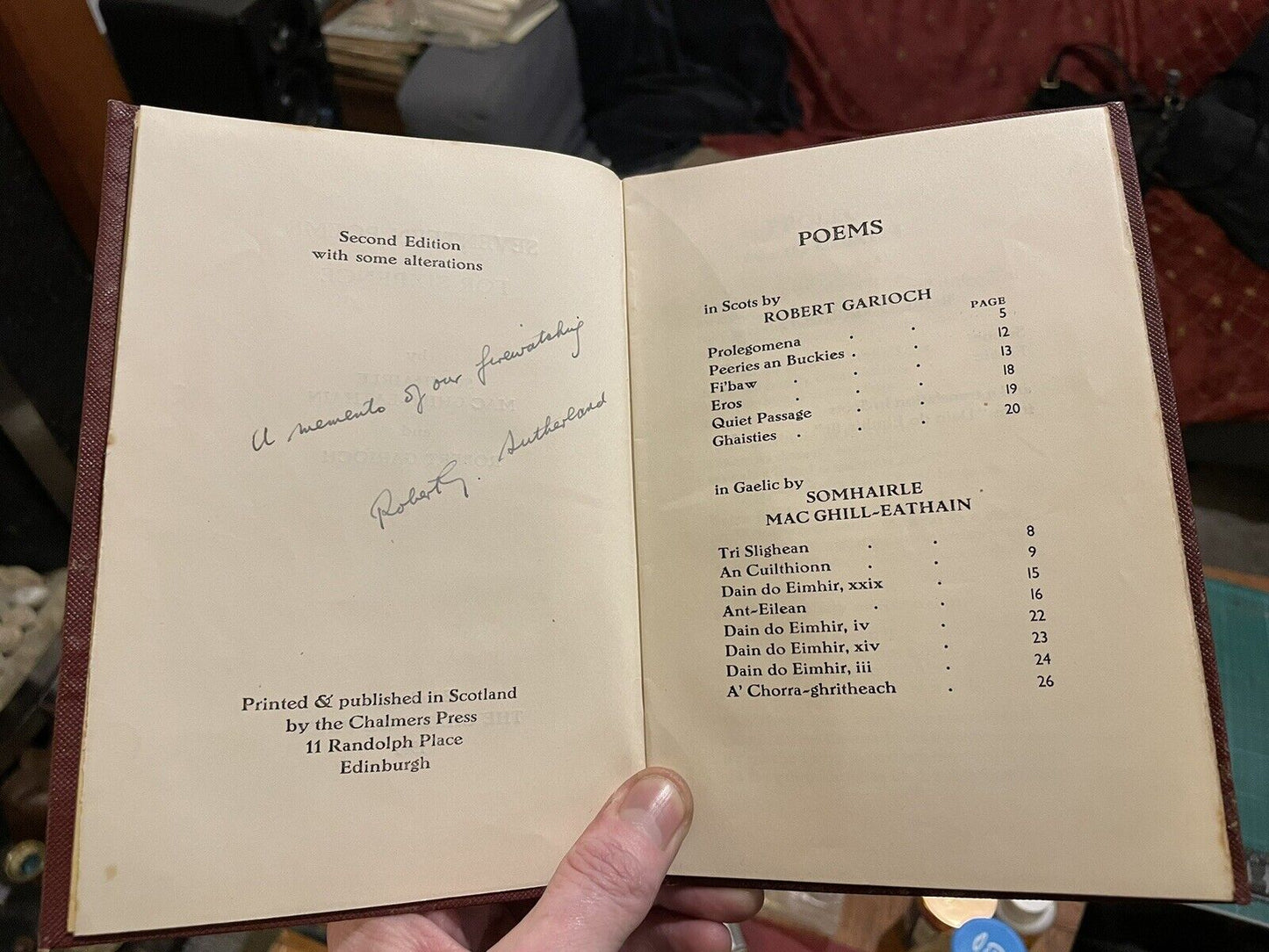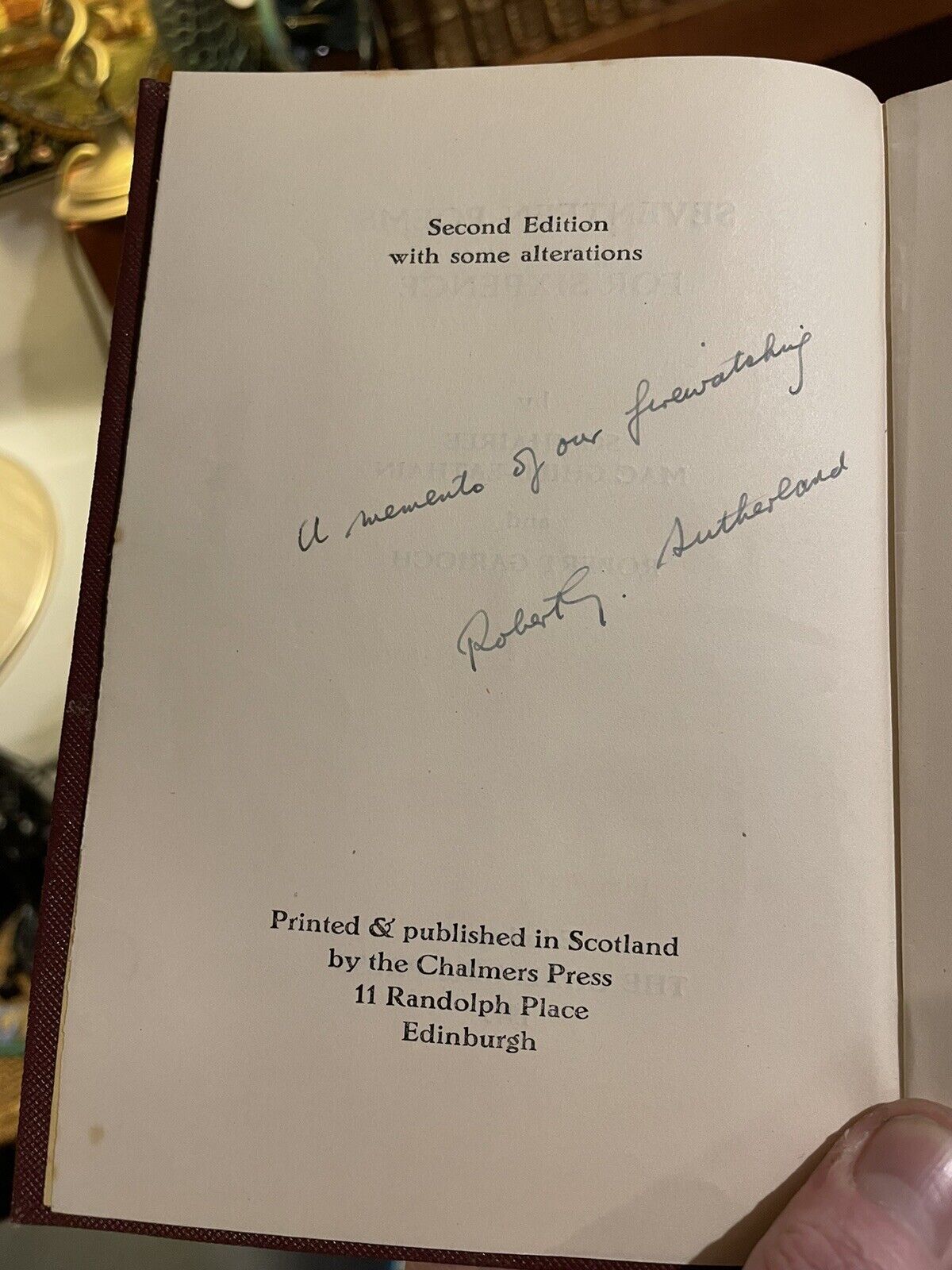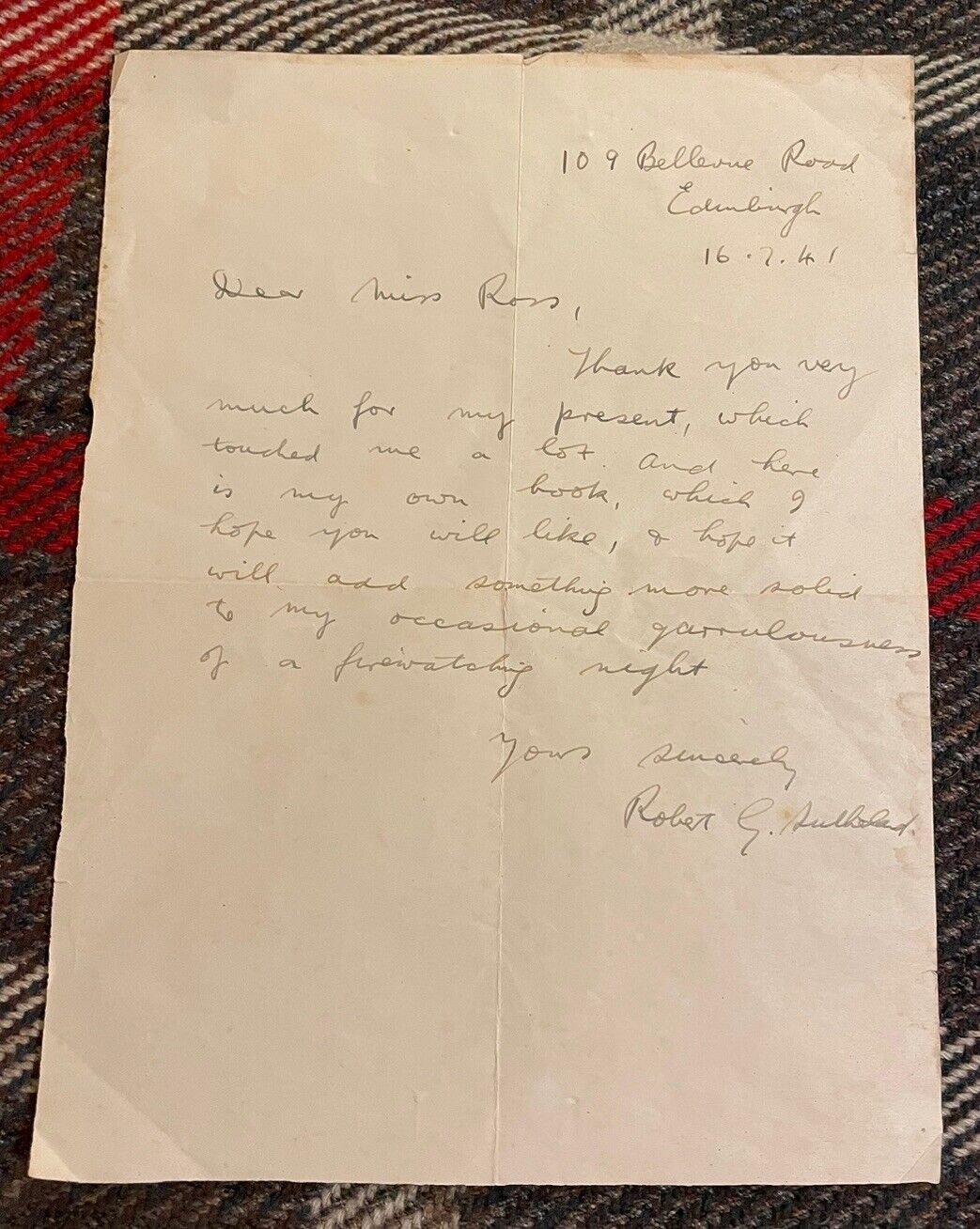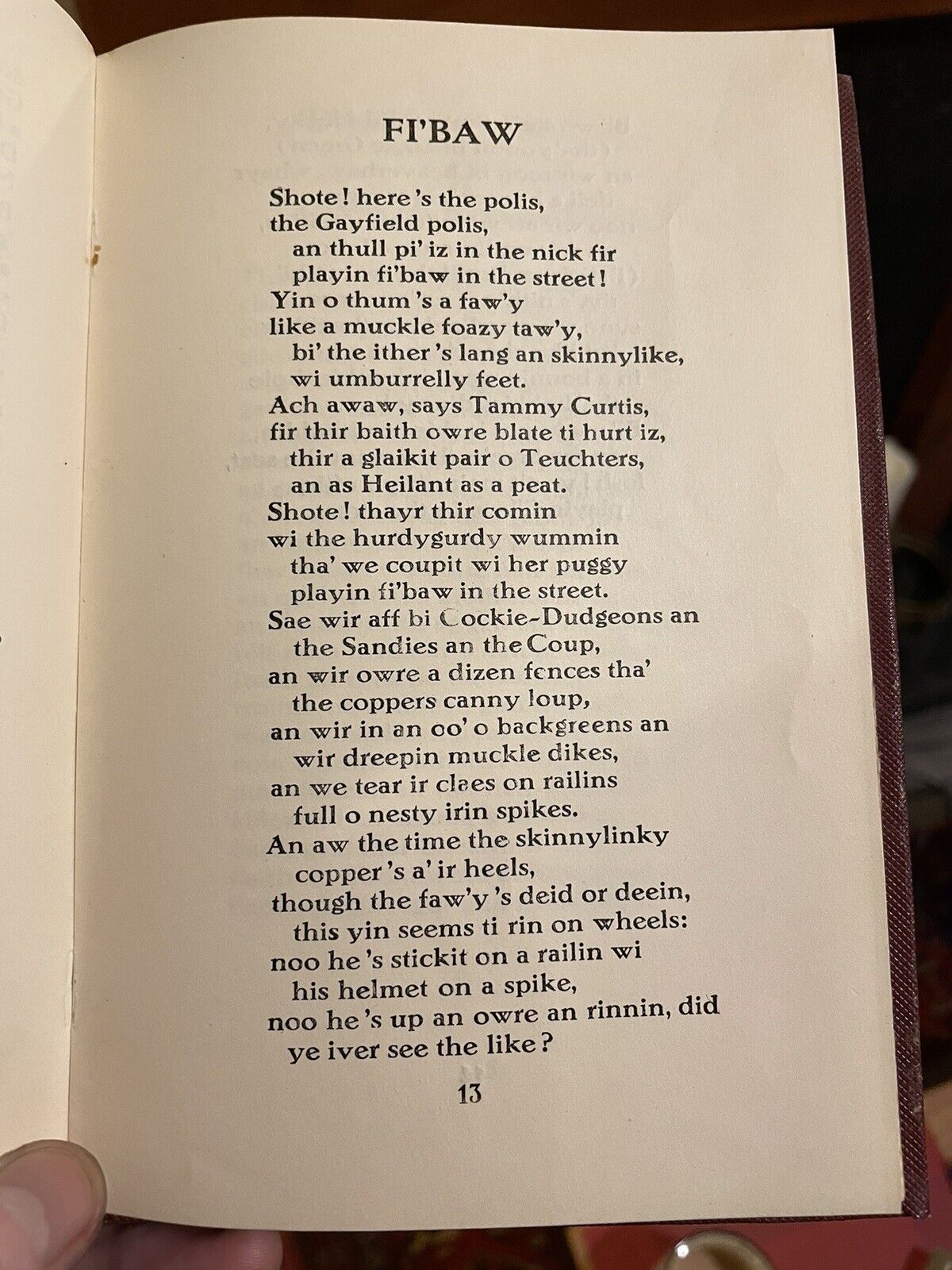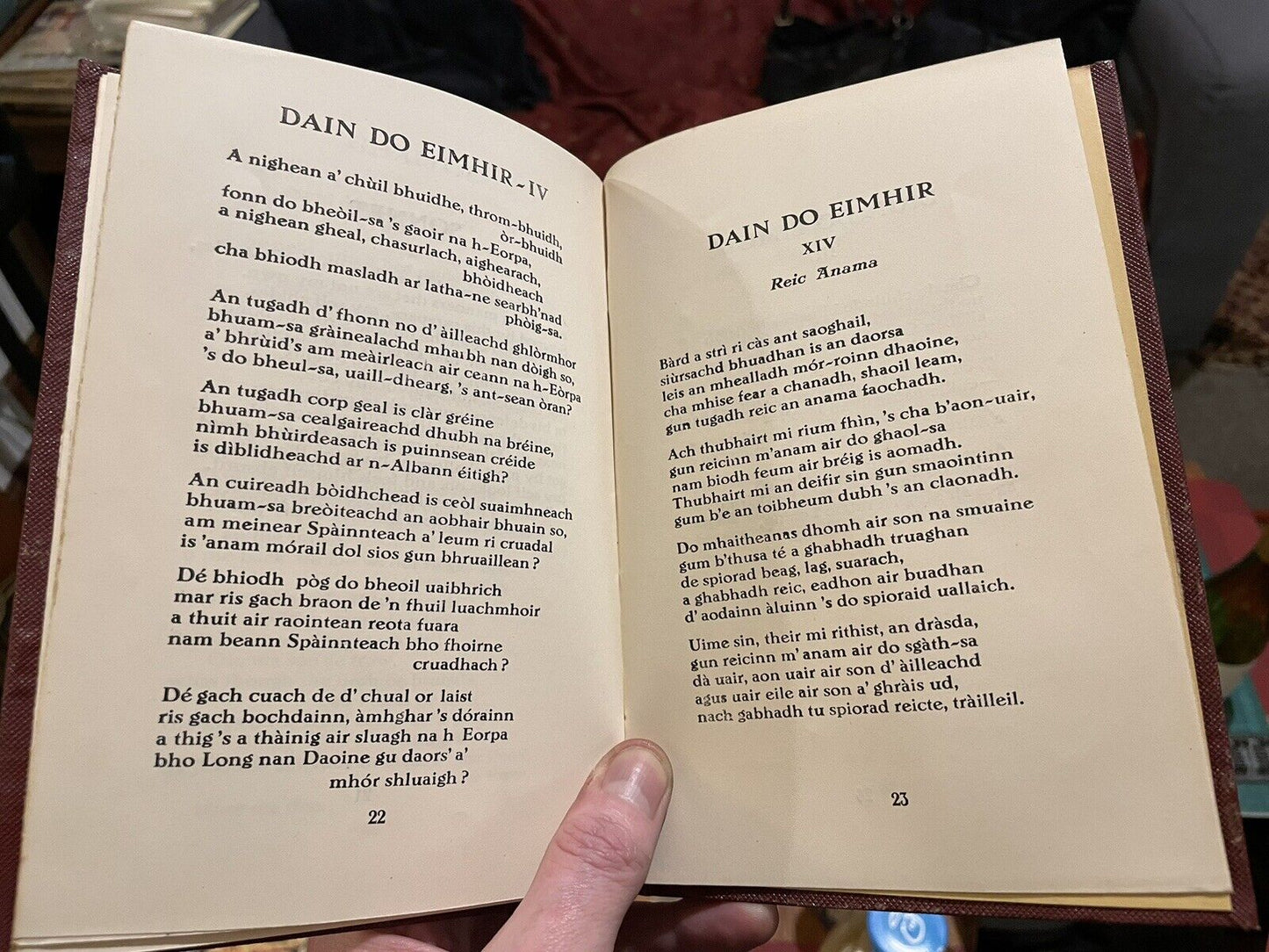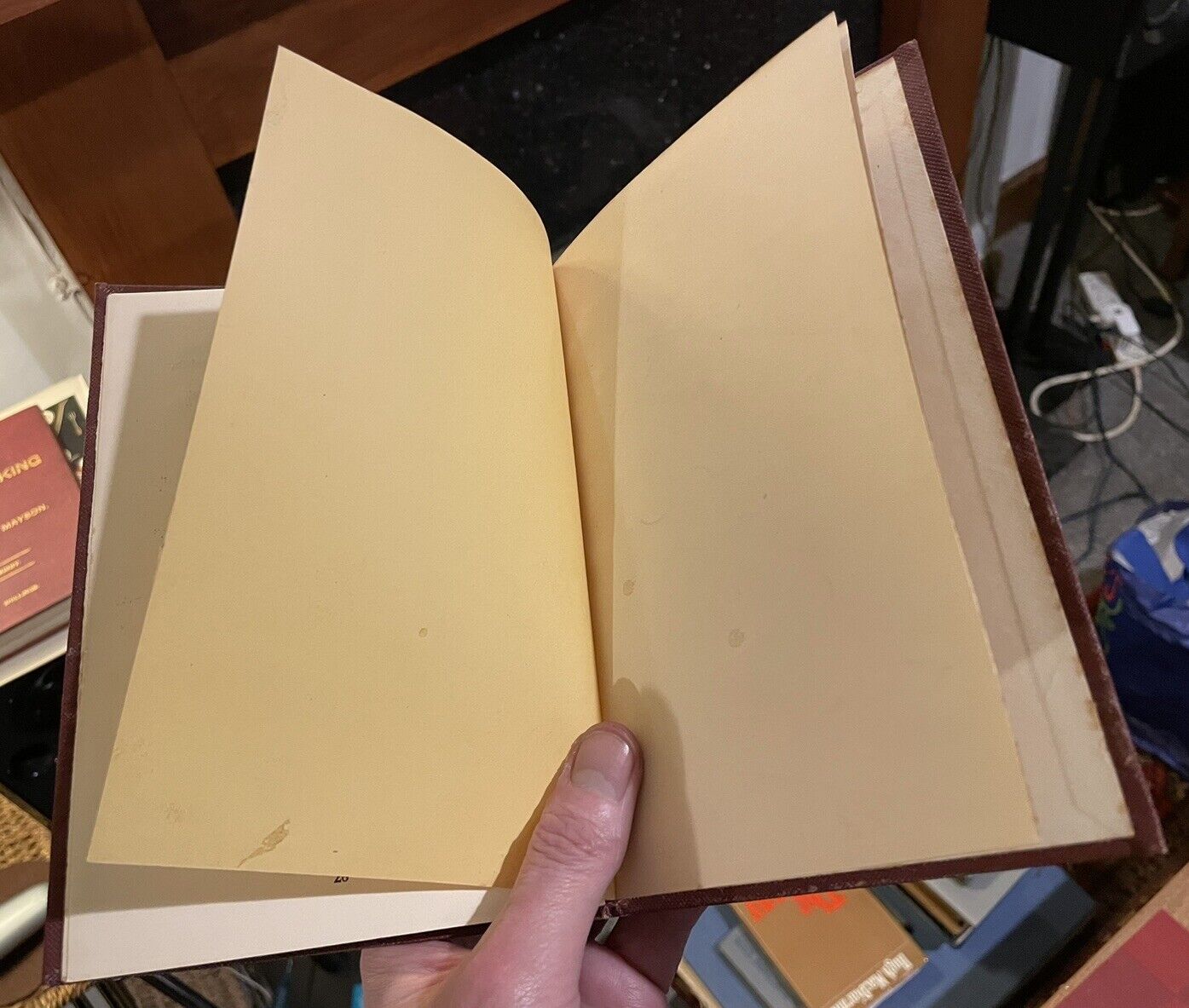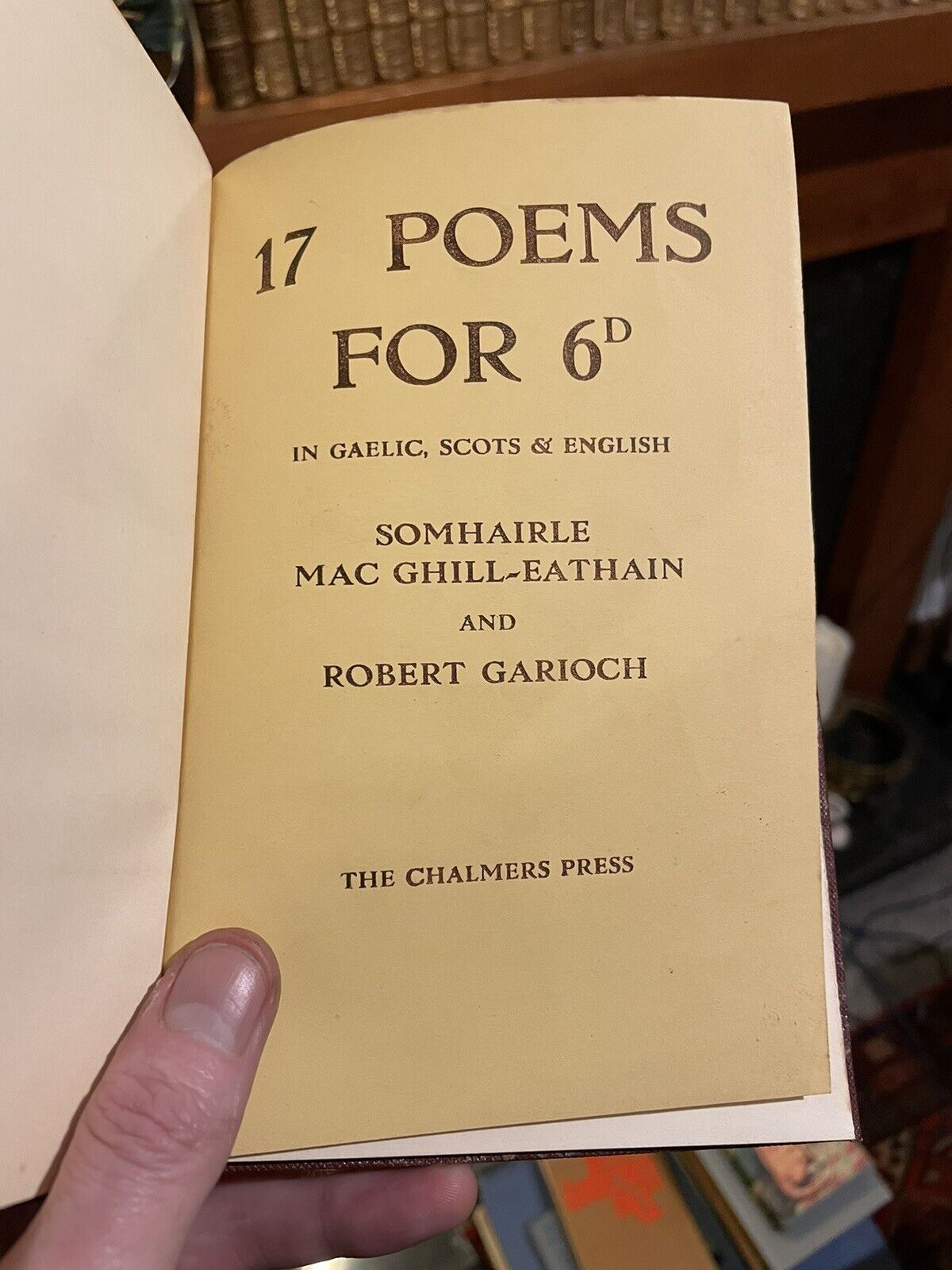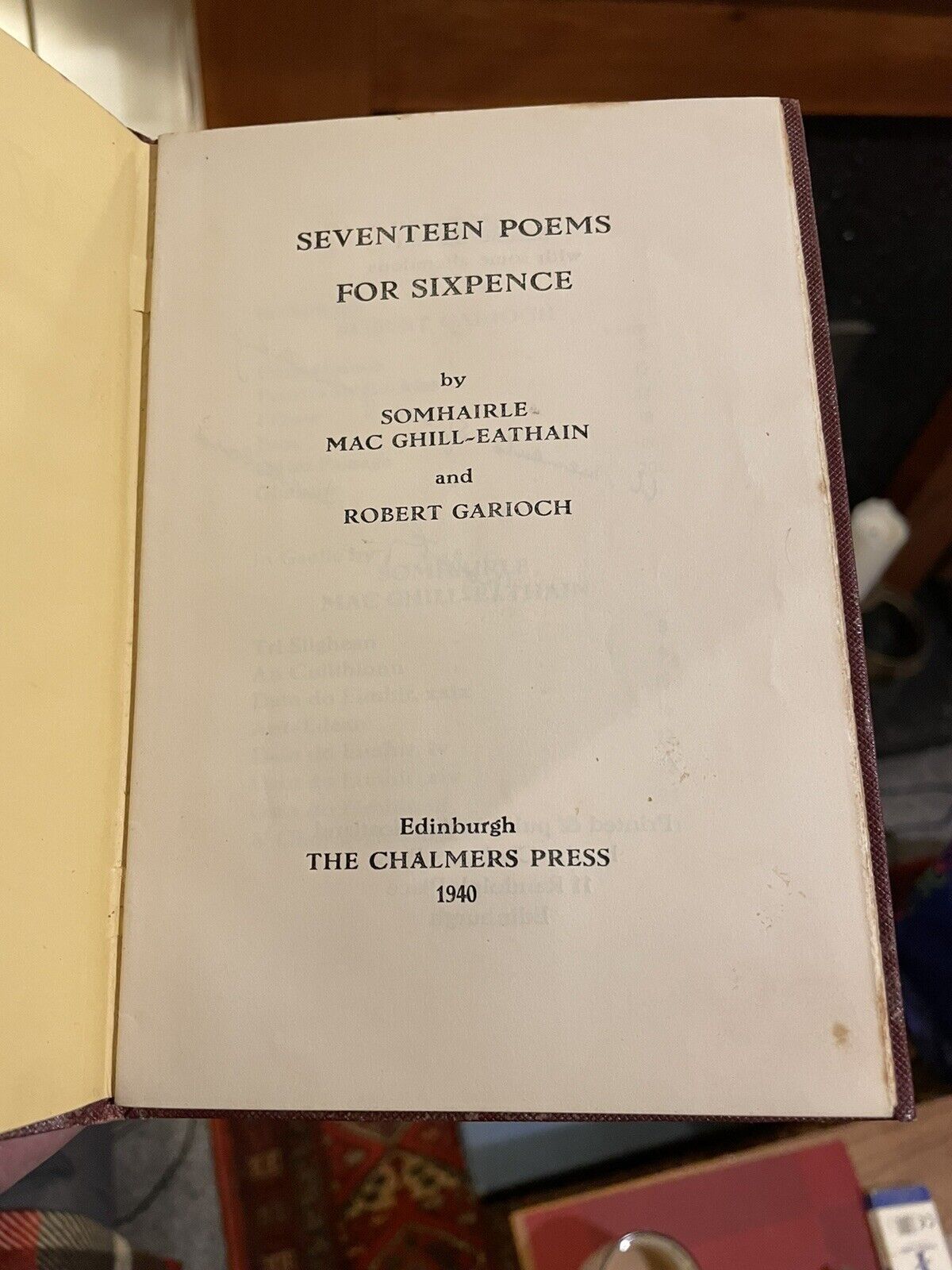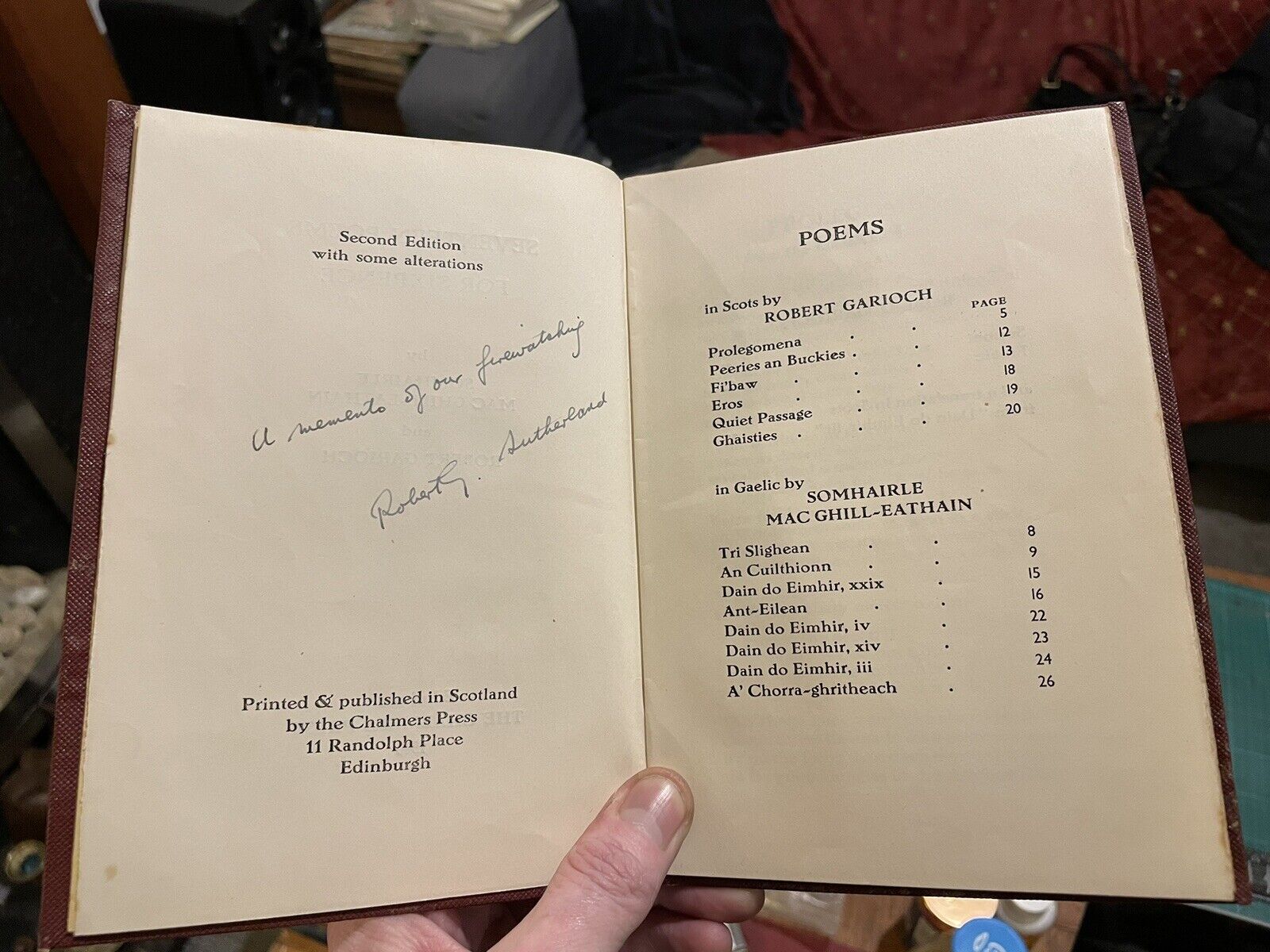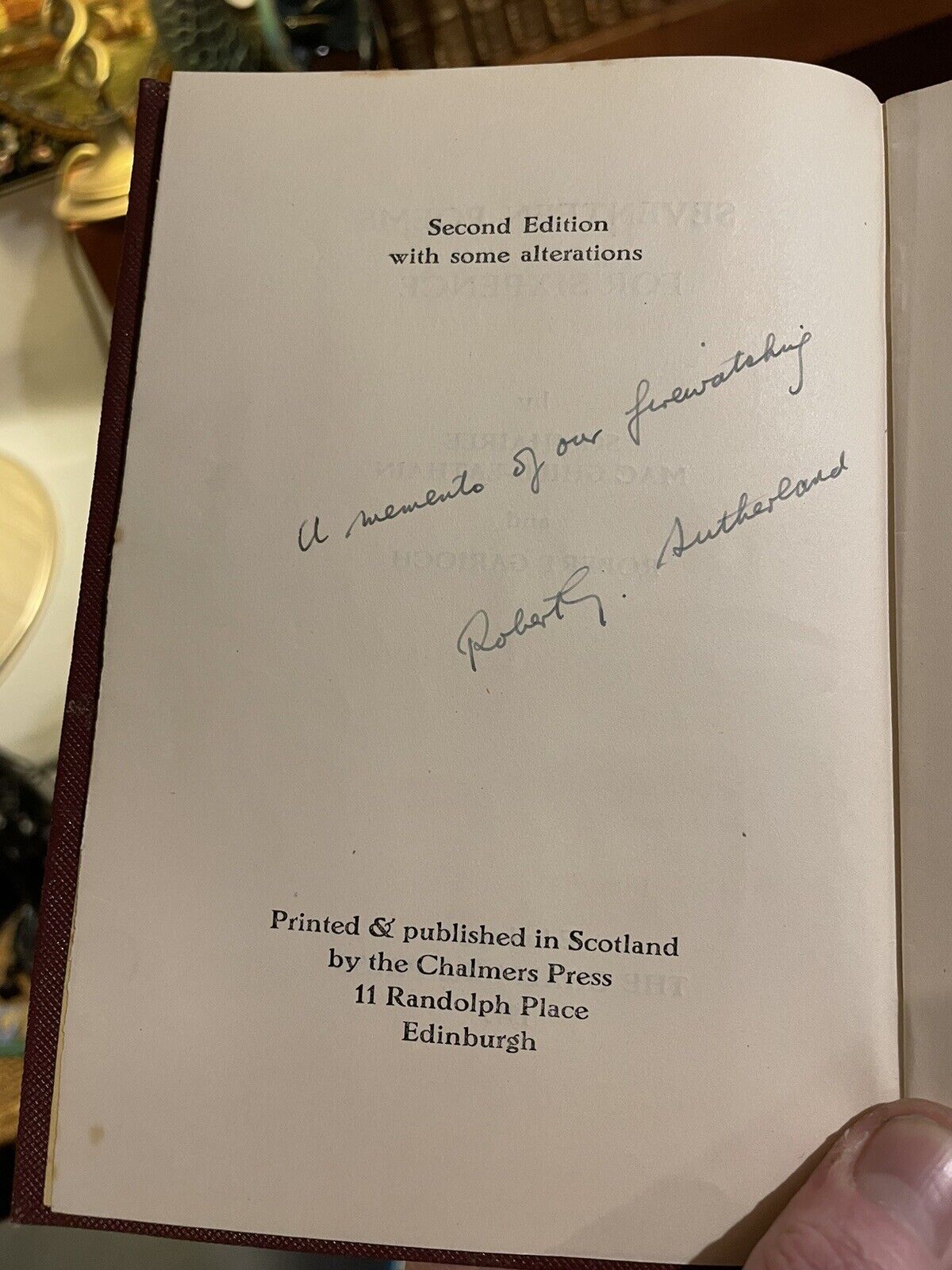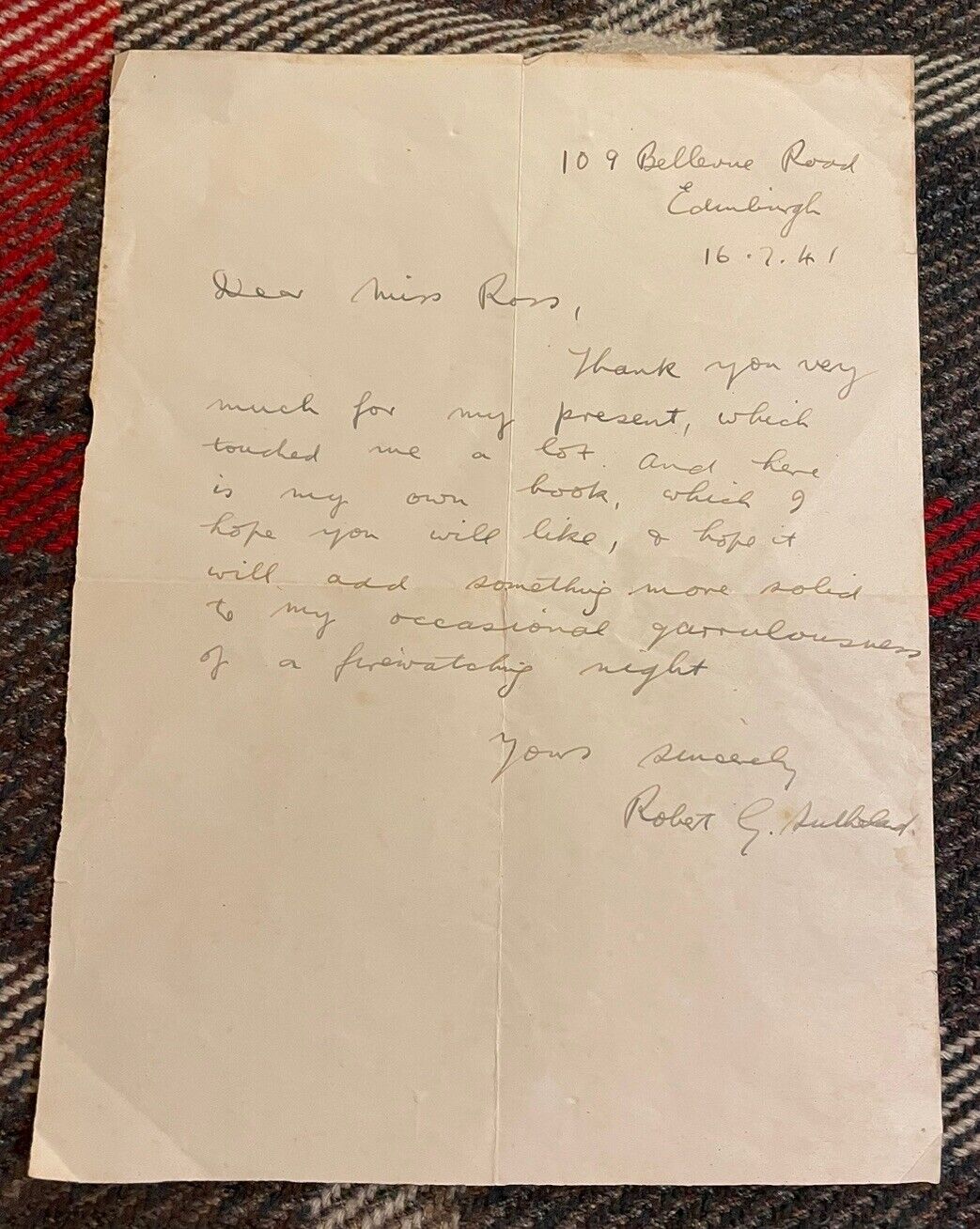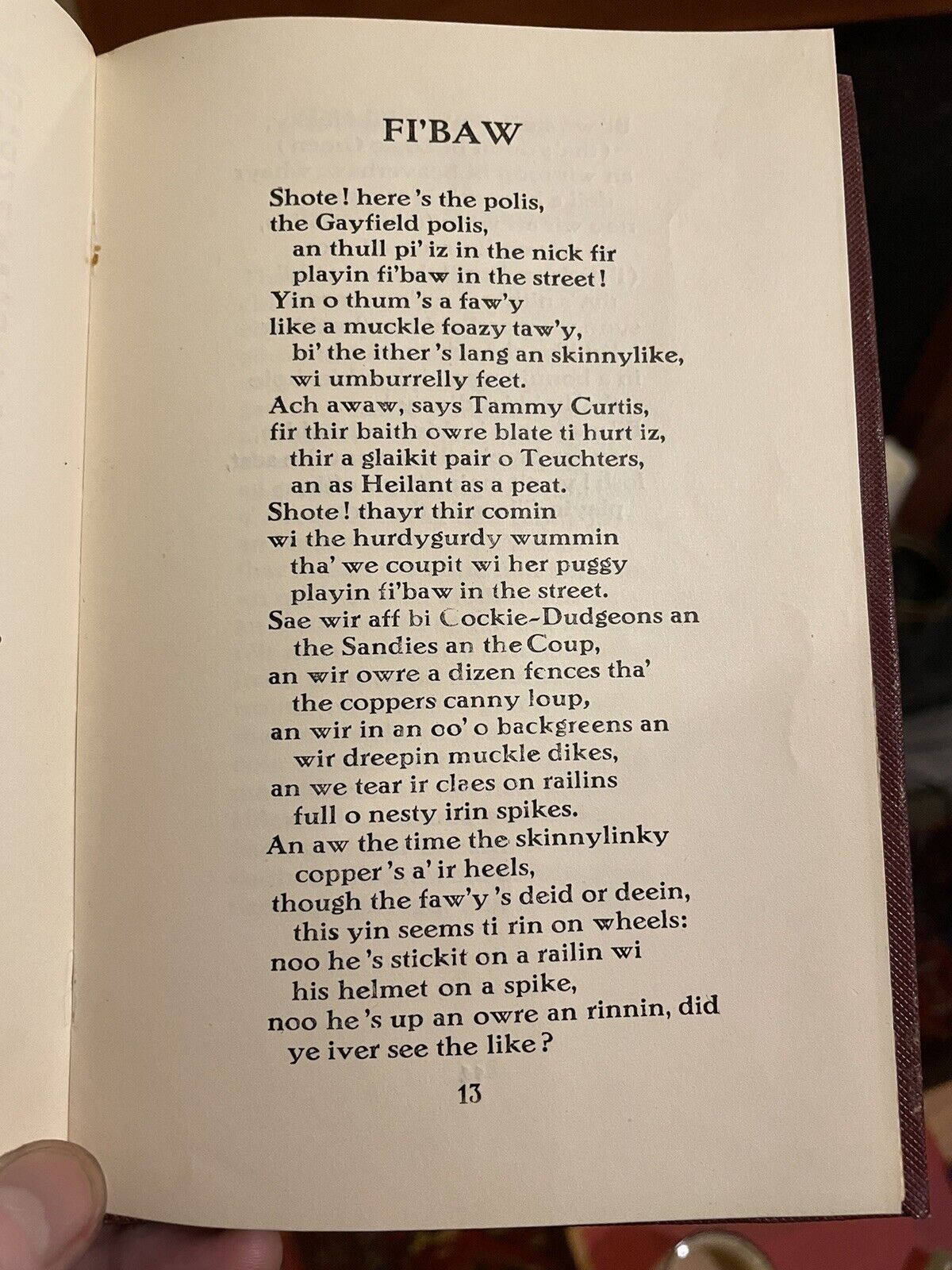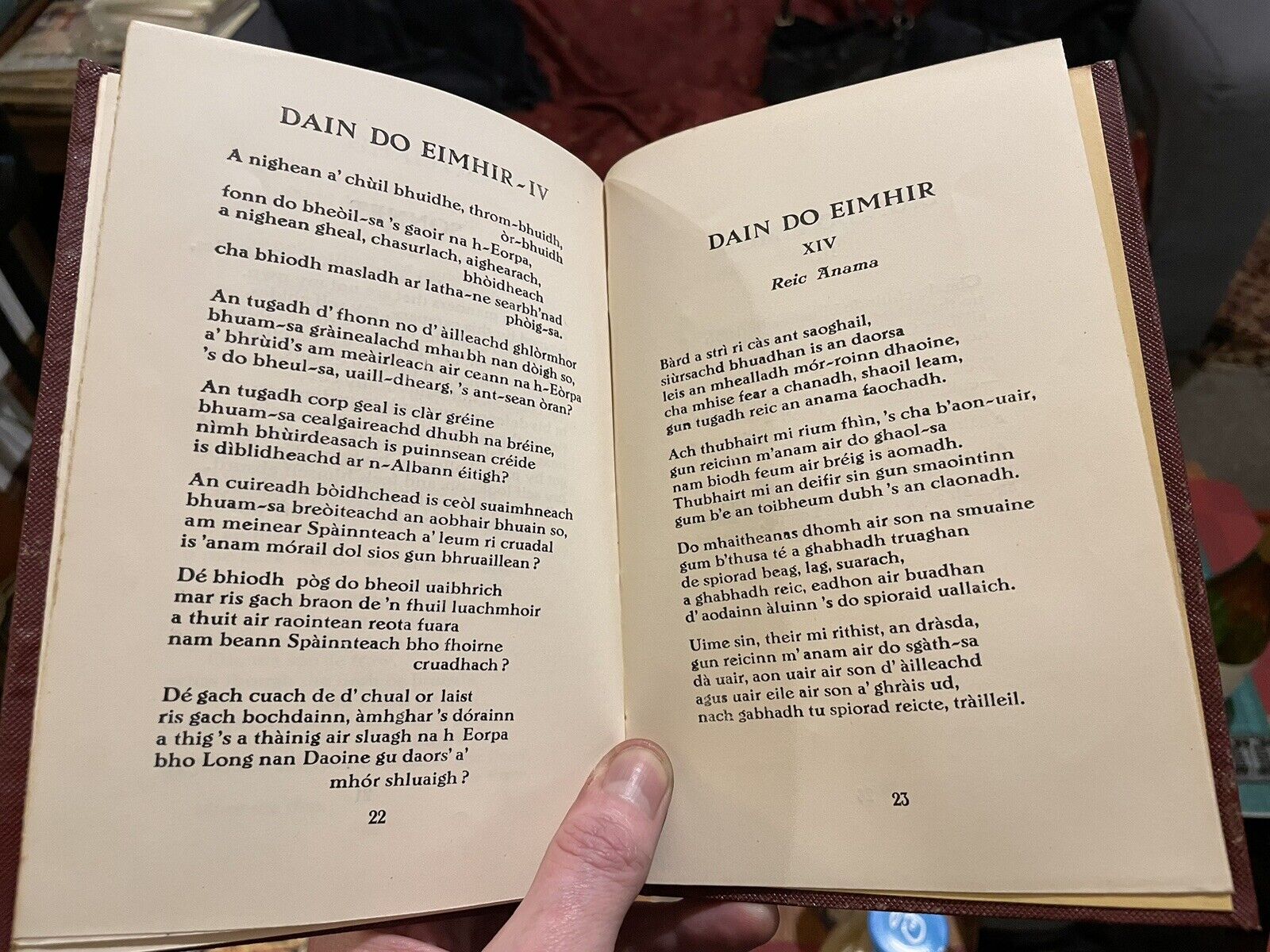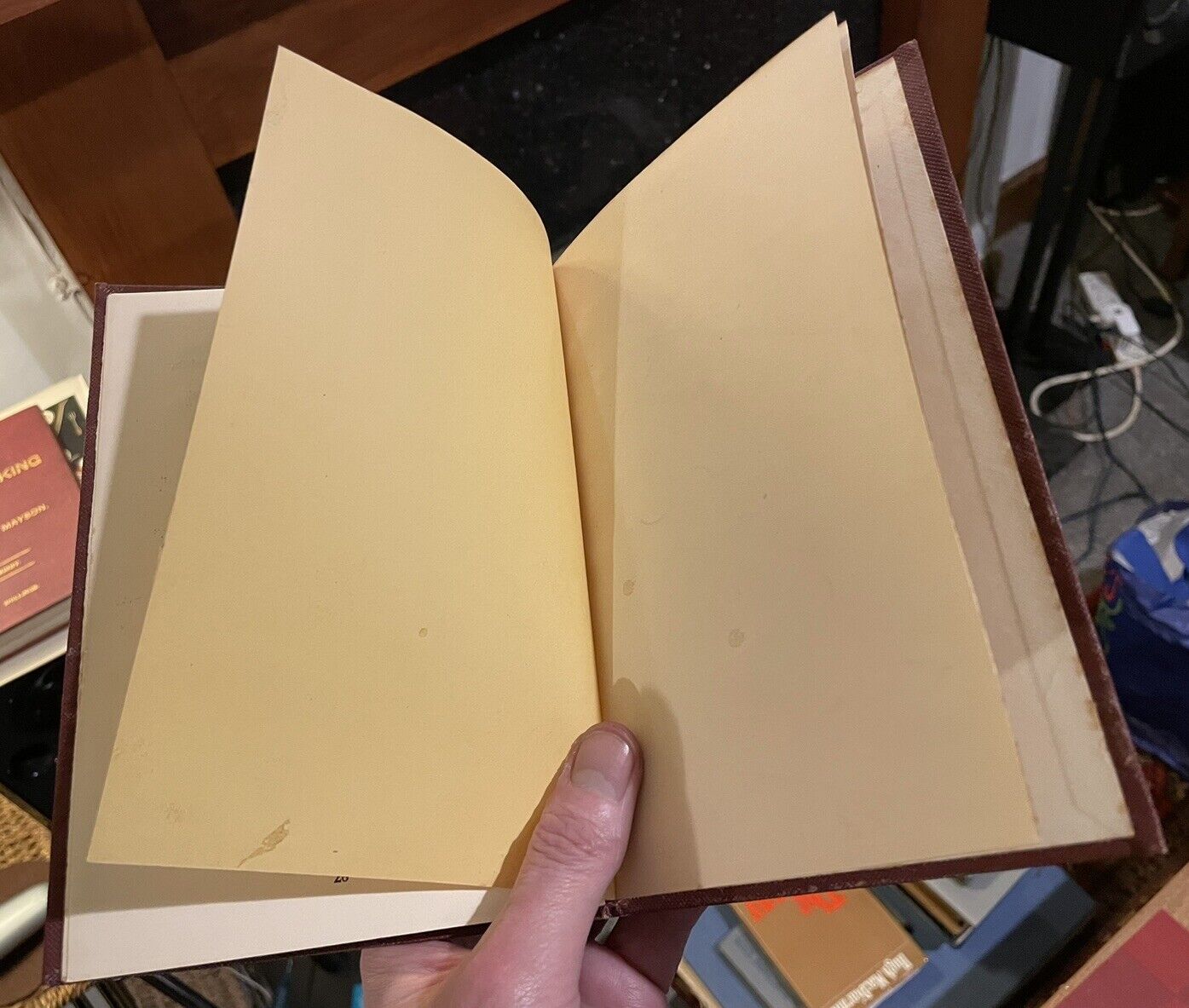The Gently Mad Book Shop
17 Poems for 6d (SIGNED + LETTER) Robert Garioch & Sorley MacLean : 1940 Scarce
17 Poems for 6d (SIGNED + LETTER) Robert Garioch & Sorley MacLean : 1940 Scarce
Couldn't load pickup availability
Seventeen Poems for Sixpence (Signed copy with Letter)
By Somhairle Mac Ghill-Eathain (Sorley MacLean) and Robert Garioch
Edinburgh: The Chalmers Press, 1940. Second Issue. Bound as a hardcover but retaining the original orange/yellow printed wraps. 28 pages.
INSCRIBED AND SIGNED BY ROBERT G. SUTHERLAND (Robert Garioch) TO THE VERSO OF TITLE PAGE "A memento of our firewatching, Robert G. Sutherland"
ALSO INCLUDED IS A LETTER FROM GARIOCH AT HIS HOME IN EDINBURGH TO A MISS ROSS - THE LETTER IS DATED 16.7.41
AS WELL AS A RARE CASSETTE WITH BOTH POETS READING THEIR OWN POEMS
This scarce book – effectively self-published by Robert Garioch – was originally published in 'late January or early February 1940', and this second, corrected edition appeared a couple of months later', although the date of the first edition is given as 'December 1939' in Christopher Whyte's edition of Dain do Eimhir (2003). The copy referred to here in this sale is the second edition
The second issue had a number of corrections, and was given the slighly revised title of 'Seventeen Poems for Sixpence'. It contained five poems from ‘Dàin do Eimhir’ (III, IV, XIV, XV and XXIX), and Robert Garioch’s Scots version of Dàin III. The volume was reviewed in The New Alliance for June/July 1940. The anonymous reviewer commented: ‘One would like to think that this is an epoch-making book…’
CONDITION
The book is in good condition. The cloth binding is good. The original bound-in wraps are very good, and unlike the few examples that have appeared for sale, the orangey-yellow covers retain their true colour. Pages good throughout. The letter is in good condition with to two creases where it was once folded.
Robert Garioch Sutherland (9 May 1909 – 26 April 1981) was a Scottish poet and translator. His poetry was written almost exclusively in the Scots language, he was a key member in the literary and language revival in the mid-20th century. However, his biggest influences were the 18th-century poet Robert Fergusson and the Italian Romanesco dialect sonneteer Giuseppe Gioachino Belli.
Unlike many of his contemporaries, Garioch wrote very little poetry concerning his war experiences. Instead he focussed primarily on social causes and the plight of the 'wee man', a fact that may account for his enduring popularity (particularly on the readings circuit). These facts, however, have distracted many critics from his extraordinary technical skill and the responsible scholarship of his handling of the Scots language, in which he surpasses all his contemporaries and even his great predecessor Hugh MacDiarmid (of whom he became critical). And there are weightier poems, such as 'The Wire', 'The Muir' or 'The Big Music', which entirely contradict the cosy persona which he sometimes adopted, and which is more often projected onto him. Aside from his original compositions, Garioch also translated a number of works by other poets into Scots. He translated a large number of poems from Roman dialect by Giuseppe Gioachino Belli, who was a massive influence on his own poetry, as well as two plays by George Buchanan (which were originally written in Latin). He also rendered Pindar and Hesiod into Scots.
Sorley MacLean (Scottish Gaelic: Somhairle MacGill-Eain; 26 October 1911 – 24 November 1996) was a Scottish Gaelic poet, described by the Scottish Poetry Library as "one of the major Scottish poets of the modern era" because of his "mastery of his chosen medium and his engagement with the European poetic tradition and European politics". Nobel Prize Laureate Seamus Heaney credited MacLean with saving Scottish Gaelic poetry.
Although his most influential works, Dàin do Eimhir and An Cuilthionn, were published in 1943, MacLean did not become well known until the 1970s, when his works were published in English translation. His later poem Hallaig, published 1954, achieved "cult status outside Gaelic-speaking circles for its supernatural representation of a village depopulated in the Highland Clearances and came to represent all Scottish Gaelic poetry in the English-speaking imagination.
(Loc: Shelf Scotland 1)
Share with someone
